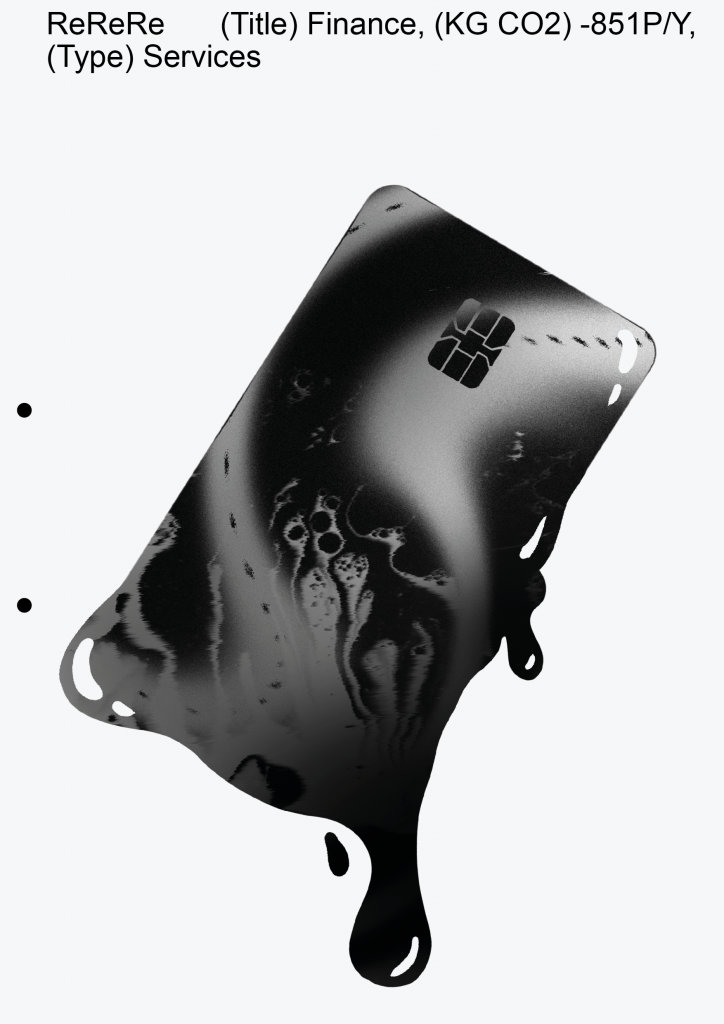
(ReReRe) Finance
(Impact) -851 CO2 P/Y
(Date) 31.08.2022
(Author) Shaima Moon
(Illustration) Shaima Moon
We are a conscious society that is becoming more and more aware of the social, economic, and environmental issues surrounding us. Yet some are more obvious than others. Did you know that choosing which bank or insurance company you sign up with has a huge impact on our planet That’s why we changed the way we finance.
Rethink
For the world to still have a two-thirds chance to limit temperature rise to 1.5°C, global greenhouse gas emissions must be brought to net zero by 2050 latest, with over half of that reduction achieved by 2030. The latest IPCC and International Energy Agency reports are both crystal clear that this requires an immediate end to all new fossil fuel exploration and development and a rapid phase-out of all remaining fossil fuel use.
These companies get massive funding from banks. Since the 2015 Paris Agreement, 60 banks have poured 3.8 trillion dollars into fossil fuels, which is the root cause of climate change. We must pressure financial institutions to stop funding these projects and companies for good. Aside from the ecological power banks hold, they also have a social responsibility to stop investing in companies that support the increasing wealth gap and social inequities.
The same goes for insurance and retirement companies who are investing your premium and funds into companies that take part in for example unfair workers’ practices, animal abuse, and pollution.
Repurpose
Banks have a lot of power when it comes to the impact they can have on the climate crisis and could prevent catastrophic consequences in the next 30 years by handing out investments and loans to ecological and social causes.
As long as they don’t, we have to stop signing up with polluting banks, demanding the defunding of climate change. Instead, we need to stick to green banks, that make the transition to green energy possible.
Insurance companies should invest more in natural catastrophe risk management.
This economic damage hits harder on marginalized communities that have hardly anything to fall back on in moments of crisis.
That’s why it’s of the essence to put our funds where they will be invested into fair and sustainable practices.
Redesign
ING and ABN AMRO are the top two banks most invested in fossil fuels and therefore financing the climate crisis. You can check how most Dutch banks score on topics such as transparency, environmental issues, and human rights here. If you want to learn more about what your insurance or retirement company is investing in, click here. Since the start of u-inc, we’ve changed from ABN AMRO to Triodos bank, the first dutch bank to become a B-Corp. Currently, the Volksbank is the front-runner of the Dutch green banks. Triodos is well on its way with its score and committed to improving its focus points. Striving for a resilient, sustainable, and inclusive economy and targeting net zero by 2035.
As for insurance companies we switched from ABN AMRO to a.s.r, currently the best scoring insurance company. a.s.r. is working towards a sustainable society by investing the insurance and pension premiums sustainably, insuring sustainable solutions, such as green roofs and solar panels, transition markets (e.g. sustainably generated energy), and contributing to the sustainable employability of the Netherlands (and the Dutch labor force).
#rerere is our action program to rethink, repurpose and redesign our social and ecological footprint for the better. you can find all our #rereres here. We hope that it inspires you to take action. Because the only way to create a future that includes you plus new generations to come is when we all take action. #timeisup